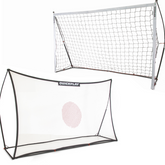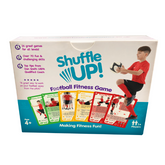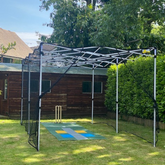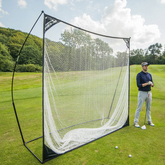The importance of children becoming involved in sport

Here at Little Big Sports, we are passionate about children and sport. It’s so important for children to be active but I appreciate that not everyone ‘gets’ it. Why is it so important for children to be involved in sport? Here are ten very good reasons – you never know, you might be tempted to try too.
1. Health and fitness – hopefully you know about this one! All children and young people should be physically active for 60 minutes a day, according to the NHS, to help their cardiac health, strengthen muscle and bones and reduce the chances of obesity. Being active is a critical part of a child's physical development, especially as our lives are so sedentary these days. It doesn’t always have to be a structured session – learning to ride a bike , taking the children swimming or climbing on a climbing frame - playing out in the garden counts too! As well as physical development, sport helps children’s …
2. Mental health – You might not think that your five year old experiences stress or anxiety but it is possible – starting school, friendship issues or the death of a loved one can spark new feelings and young children don’t necessarily know how to cope. Being involved in physical activity can help to channel a difficult emotion or even take their minds off it, mindfulness if you like. And this leads me onto …
3. Establishing good, healthy habits – young children that are involved in a sport or physical activity are more likely to continue to participate throughout their teens and then into adulthood. A habit of playing football every week, attending dance classes or whatever it may be helps to safeguard adults’ physical and emotional wellbeing, ultimately contributing to a happy and healthy life!
4. Learning about strategy – we all know that top sports people have a strategy when they step out to compete and children can start to develop these thought processes from a young age. I’ve noticed it on the football pitch whilst watching my children – they begin by following the ball as a pack and then they start to realise that if they spread out into their positions, they’re more likely to stop the opposition from attacking their goal. It’s as simple as that! Sport affords children the opportunity to develop tactics and use this skill in other areas of their life.
5. Child’s hand/eye coordination – this is a critical gross motor skill that we all need. Imagine driving, making dinner or even looking after your children without it! Whilst the body develops this ability innately, you can help to hone it by encouraging your child to participate in sport. Even sports that don’t involve a bat and ball can help as your child will have to gauge distances – reaching the end of the swimming pool for example, or where to put their hand next on a climbing wall.
6. Perseverance – not every child is a Tiger Woods when it comes to golf and the first time they have a go at hitting that small white ball may take several attempts. Hopefully with some coaching and guidance, they will continue to try and once they’ve achieved that, they’ll move onto other parts of the game. Sport is a great way to learn about the importance of listening and learning the foundations of the game and practice with the end goal being able to play the sport competently. And that leads nicely onto,
7. A sense of achievement – one of the great things about sport is that achievement comes in many guises thanks to the concept of ‘personal best’. Your team may not have won the league, but did you finish higher than last year? You may not have had a ‘podium place’ in the long jump, but did you jump further than ever before? That sense of achievement, no matter how small, can really boost confidence and improve a child’s self-esteem within their sport and in the classroom.
8. Teamwork – ‘Getting along and engaging with others is the building block of many things in life,’ says chartered clinical psychologist and parenting adviser Claire Halsey, ‘From a young age, children need to learn how to give and take, share, take turns, play to their strengths and draw in other people to fill the gaps. It’s a core social skill.’ Team sports are obviously great for this but if your child loves an individual sport then they can appreciate teamwork by understanding their …
9. Commitment to a club – if your child plays for a club or attends regular training sessions, they will develop a sense of belonging, of being part of a team, even if they play an individual sport. We, as parents, need to help them understand their commitment to that club (“If no one can be bothered to turn up to play their match, then the opposition will win!”) and the responsibility that they have to its success.
10. Friendship – sports groups outside of school can provide your children with a new set of friends. For children who are struggling with friendship groups day-to-day a sports group can be invaluable – there is no issue with what game to play as they’re all there to do the same thing, eradicating disagreements but building strong bonds.
There are so many reasons for your child to play sport from a young age – I’ve only listed ten here. It really is so valuable to their development, building a skill set that they can use throughout life. I hope I’ve inspired you and maybe you will find a new sport too – you might want to learn a sport alongside your child, it’s never too late!













